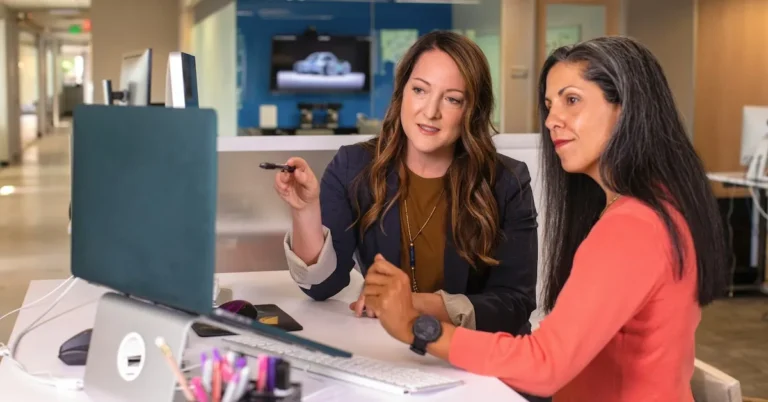We often hear the phrase ‘words aren’t biased’. And in many ways, that’s entirely correct — they’re not. A word like ‘ambition’, or ‘kind’, for example, viewed by itself is… just a word.
But when we view them through a sociocultural lens, things get a bit trickier. The word ‘ambition’ is more likely to bring to mind a man. And if you run a Google image search on the phrase ‘kind person’, you’re more likely to see pictures of women.
So what’s behind gendered language, and how does it influence your organisation’s diversity, equity and inclusion efforts?
Decoding the hidden gender bias in our language
People often say that words like ambition aren’t gendered, but that’s usually because they’re looking at them in isolation – without considering the social and cultural context they come with. The truth is, language isn’t neutral. It’s shaped by the world we grow up in – our parents, teachers, the media we consume, and the people we interact with every day.
These stereotypes and gender norms are everywhere, influencing how we see and describe others. Think about the word driven – who comes to mind? Traditionally, men have been expected to be ambitious, independent, and goal-oriented, while women are encouraged to be more team-focused and community-driven. That’s why words like ambitious can feel heavier or more complicated, depending on who they’re applied to.
Gender bias in language is everywhere. But what does that mean for your workplace, and what can you do to reduce it?
How biased language impacts your organisation
Certain words reinforce traditional gender stereotypes – those that align with masculinity are called agentic language (think driven, assertive, competitive), while those tied to femininity are known as communal language (like nurturing, supportive, collaborative). And the way these words show up in the workplace can have real consequences.
Gender-biased language doesn’t just affect one group – it impacts everyone. For example, ethnically marginalized individuals may internalize stereotypes about how others perceive them, which can make them less likely to apply for jobs. In performance reviews, managers tend to value traits like taking charge more when assessing men, reinforcing the idea that leadership is inherently masculine.
Language influences everything. If certain words don’t resonate with certain groups – like how women may not always relate to words like ambitious because of their traditionally masculine connotation- it can shape career choices, hiring decisions, and even workplace culture.
At the end of the day, language defines more than just communication. It influences who gets hired, who advances, and who ultimately shapes the future of a company.
Helping you eliminate bias, one word at a time
Ultimately, eliminating biased language at an organisational level can help create greater inclusion. Organisations can take steps towards this goal in a few key ways:
- Create a written employee resource to help signpost awareness of language usage, behaviour norms, and the language that reflects your values as a company. For example: Making it a habit to ask for preferred pronouns.
- Avoid using gender biased language across all HR and employee processes, such as referring to ‘parental leave’ instead of maternity leave.
- Create an employee resource group that helps advocate for, and support your DEIB causes at a grassroots level. Remember that teams should be appropriately resourced, and have an executive sponsor in order to further inclusion long-term.
The right tools, like our AI Smart Editor, can help you meet this challenge more efficiently.



